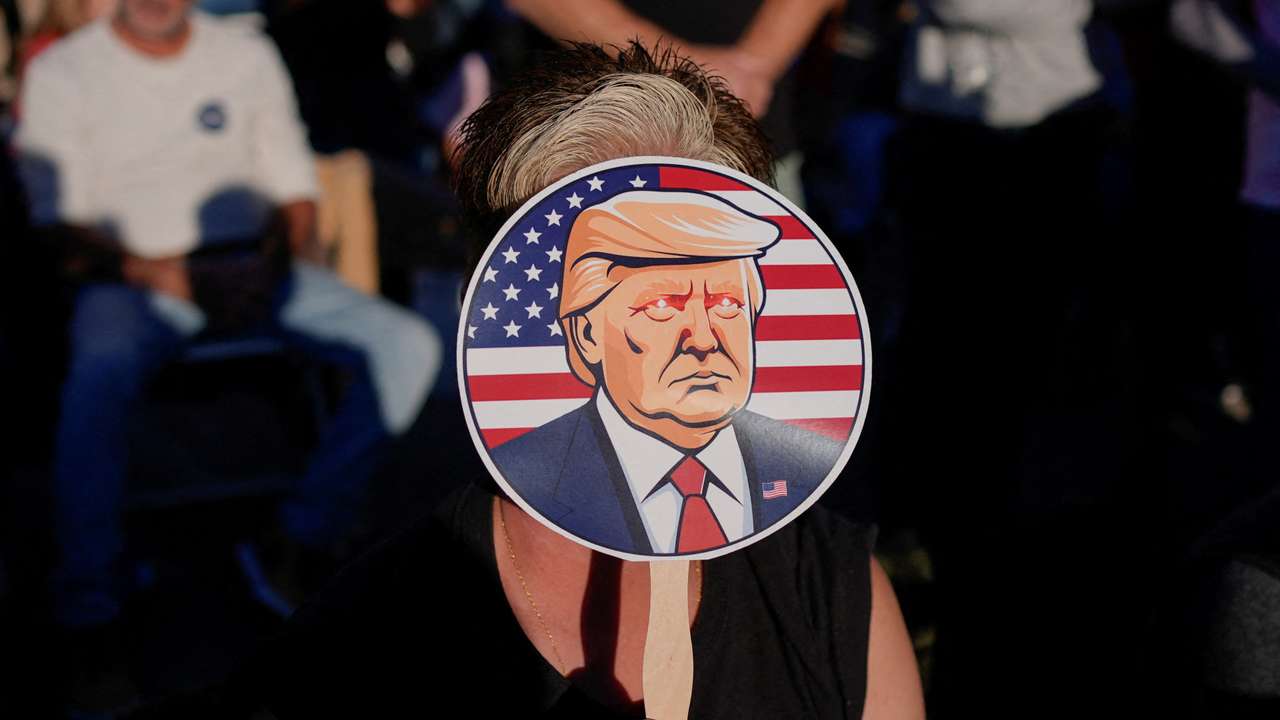What a second Trump presidency could mean for Africa

Donald Trump is set to return to the White House as the 47th President of the United States after a closely contested race against Vice President Kamala Harris.
With Trump securing 295 electoral votes to Harris's 226, according to figures by The Associated Press, his victory has sparked mixed reactions across the globe, particularly in Africa.
As African nations consider what this means for trade, immigration, and foreign policy, many wonder if Trump’s second term will signal new challenges or opportunities.
An “America First” foreign policy
Ghanaian Political Analyst, Professor Etse Sikanku, anticipates that Trump’s "America First" policy will take precedence, potentially limiting cooperation with African countries. Sikanku suggests that under Trump, the US may become more inward-looking: “America is going to return to its isolationism…to take a backward seat when it comes to global affairs. They'll be less interested in internationalism, less interested in international cooperation, less interested in multiculturalism,” he told GSW’s Wonder Hagan.
African leaders extend congratulations
Despite concerns, several African leaders have congratulated Trump, expressing a willingness to work with his administration. Somalian President Hassan Sheikh Mohamud, whose country recently had a $1.1 billion debt cancelled by the Biden administration, conveyed his eagerness to collaborate on security and peace efforts. For Somalia, struggling with internal conflicts and insurgencies, partnership with the US remains critical.
Key policies of concern for Africa
Trade and economic policies
The future of the African Growth and Opportunity Act (AGOA), a programme allowing African exports tax-free access to US markets, is now uncertain. Trump previously indicated he would not renew AGOA when it expires in 2025, advocating instead for a universal 10% tariff on foreign goods. This shift could disrupt the economic benefits that African countries currently enjoy, impacting trade-dependent sectors.
Immigration and travel restrictions
Trump’s hardline stance on immigration is a concern for many Africans, as migration to the US is a path toward better opportunities for many. During his first term, Trump implemented a travel ban targeting several African nations. With migration at record levels—58,000 African migrants were reported at the US-Mexico border in 2023 alone—a renewed travel ban could further limit African migration options, especially for those fleeing conflict and poverty.
Climate policy and fossil fuels
Africa’s leaders have voiced the need for support in addressing climate change while balancing energy needs. Trump’s policies on climate are likely to favour fossil fuel expansion, a stance he emphasised in a post-election speech promising to “amp up oil production.”
“We have more liquid gold than any country in the world… More than Saudi Arabia. We have more than Russia,” said the president-elect to a jubilant Republican crowd.
African nations seeking investment in both fossil fuel and renewable energy may find the Trump administration supportive of the former but potentially restrictive on climate-focused funding.
LGBTQ rights and social policies
US foreign aid policies under Trump are also likely to shift, particularly concerning social issues like LGBTQ rights. Trump’s stance may appeal to some African leaders who have criticised past US administrations for tying aid to social value conditions. Following Uganda’s recent upholding of an anti-gay law and Ghana’s passage of an anti-gay bill, leaders like Rwanda’s President Paul Kagame have expressed hope for a US partnership rooted in mutual respect rather than “imposing its views and ways of life.”
During his congratulatory message to Trump, Kagame said: “Your clear message has been that the United States should be a partner of choice that attracts by the force of its example, rather than by imposing its views and ways of life on others. I therefore look forward to working with you for the common benefit of both our countries in the years ahead.”
With Trump’s presidency set to begin on January 20, as per the American Constitution's 20th Amendment, Africans are preparing for a new era of US-Africa relations. Whether through changes in trade, immigration, or climate policy, Trump’s second term will undoubtedly have implications for the continent.